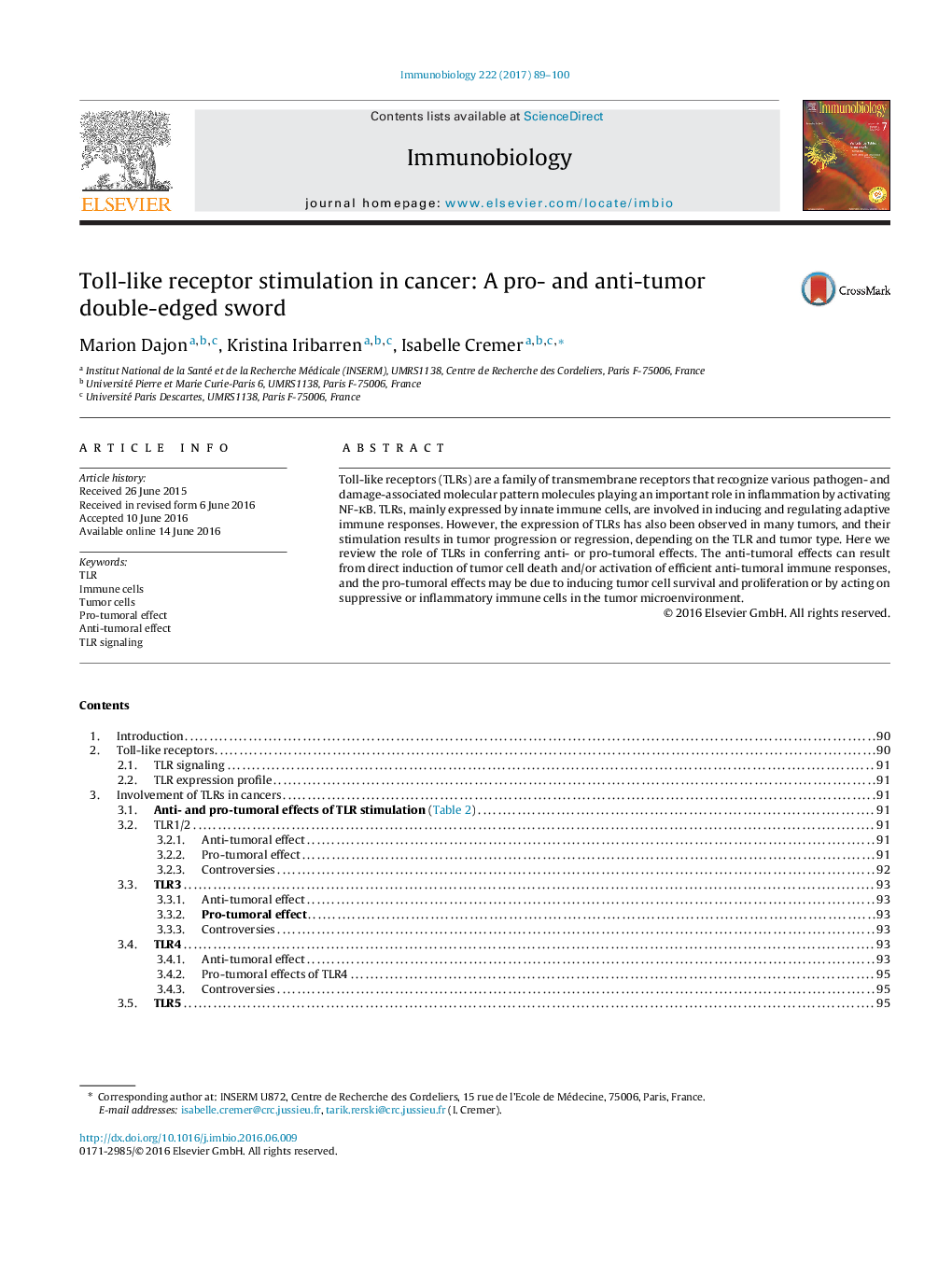| Article ID | Journal | Published Year | Pages | File Type |
|---|---|---|---|---|
| 5533239 | Immunobiology | 2017 | 12 Pages |
Toll-like receptors (TLRs) are a family of transmembrane receptors that recognize various pathogen- and damage-associated molecular pattern molecules playing an important role in inflammation by activating NF-кB. TLRs, mainly expressed by innate immune cells, are involved in inducing and regulating adaptive immune responses. However, the expression of TLRs has also been observed in many tumors, and their stimulation results in tumor progression or regression, depending on the TLR and tumor type. Here we review the role of TLRs in conferring anti- or pro-tumoral effects. The anti-tumoral effects can result from direct induction of tumor cell death and/or activation of efficient anti-tumoral immune responses, and the pro-tumoral effects may be due to inducing tumor cell survival and proliferation or by acting on suppressive or inflammatory immune cells in the tumor microenvironment.
